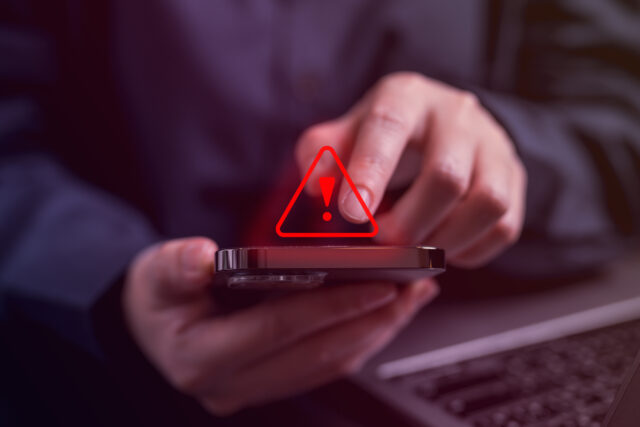
How to protect yourself
According to the Consumer Financial Protection Bureau, some of the best steps to take to ensure your safety from scams are:
- Don’t click on unknown links or QR codes
- Put your phone number on the National Do Not Call registry
- Don’t share numbers or passwords to credit cards, accounts or Social Security
Read more on common ways scammers will try to get your information and ways you can protect yourself at the link below.

Has someone you cared for paid a scammer?
If a person has confided in you that they’ve fallen victim to fraud, it’s crucial to hear them out and take action. Learn how to validate their story and how to encourage them to report their experience on the Federal Trade Commission’s (FTC) website.

Securing Personal Information
With most of our personal information turning digital in recent years, it’s important to know ways to secure devices and services to ensure that they’re less likely to be targeted by scammers. The FTC’s Consumer Advice explains how you can secure your accounts and protect your home network.
Important Resources
Reporting Fraud
Do you believe you’ve been affected by fraud? Reporting suspicious or known fraudulent activity through the Federal Trade Commission instantly provides you with a recovery plan and is shared with 2,800 law enforcers to prevent further scams.
FTC Fraud ReportsConsumer Advice
The FTC’s Consumer’s Advice page provides hundreds of articles and Consumer Alerts that stay regularly updated on prevalent scams and ways to keep yourself protected from them.
Consumer AdviceVeterans & Active Military
Tips and tricks for veterans and active military members to keep their information and funds safe from scammers.
MIlitary ConsumerConsumer Alerts
Alerts through the FTC updated regularly on recent fraud and scams such as identity theft and protection, jobs, shopping, and much more. Signing up for Consumer Alerts is a great way to stay updated regarding current scams you may come into contact with.
Consumer Alerts




